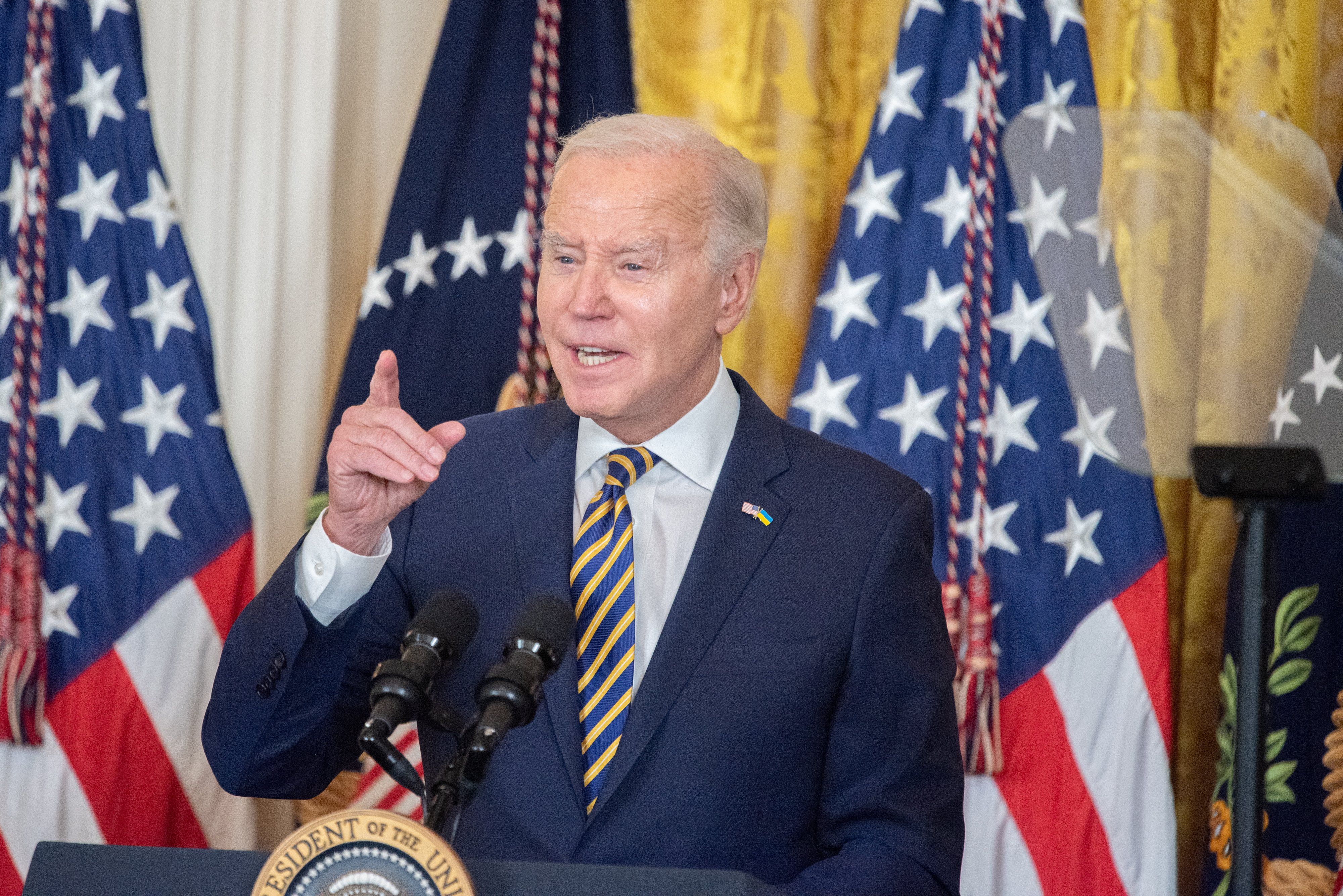President Joe Biden is blaming Donald Trump for killing a Senate bill on Ukraine support and border security on Wednesday.
The bill would have delivered billions of dollars in aid to Ukraine and Israel along with stricter border security – including asylum restrictions, a major stated goal for the GOP.
The bill looked like it might have enough bipartisan support to pass until Trump weighed in to trash it. In the end, only four Republicans voted “yes”.
The bill would have been a win for Biden at a time when the Trump-led GOP are keen to amplify their message that President Biden is neglecting the border to a “constitutionally violating” degree.
Biden is trying to flip the script by blaming Trump for the demise of the border deal, aid to Ukraine, support for Israel, and relief for Gaza – all at once.
Four Democrats also voted against the bill, including majority leader Chuck Schumer, who, after seeing GOP support evaporate, cast a “no” vote as a tactical move allowing him to quickly call for a vote on the foreign aid portion alone. Doing so forces the GOP to decide whether to block Ukraine and Israel's aid twice in one day.
